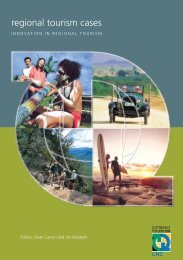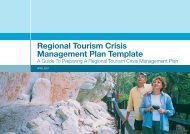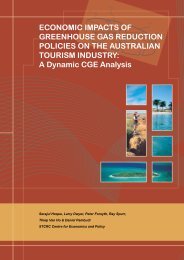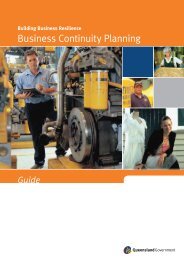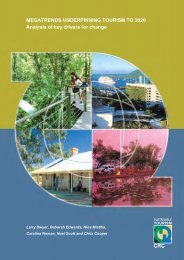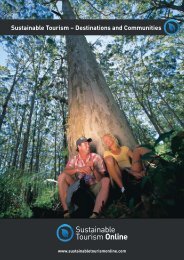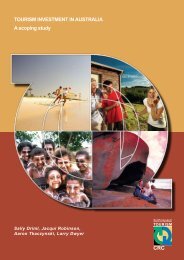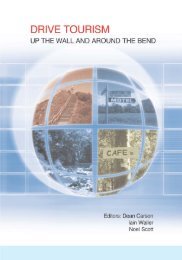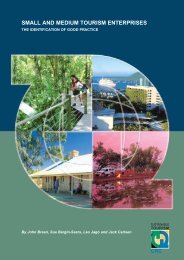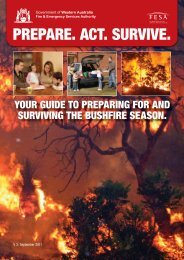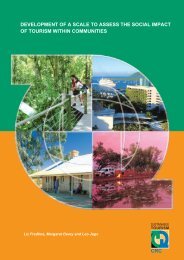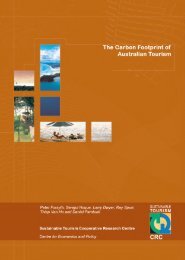Tourism Risk Management - Sustainable Tourism Online
Tourism Risk Management - Sustainable Tourism Online
Tourism Risk Management - Sustainable Tourism Online
You also want an ePaper? Increase the reach of your titles
YUMPU automatically turns print PDFs into web optimized ePapers that Google loves.
oom or area to be established as the crisis control centre and provide the following minimum<br />
facilities and equipment:<br />
• a main work area with adequate space, lighting and low sound level;<br />
• area for meetings and briefing staff;<br />
• access control point;<br />
• separate media briefing room;<br />
• rest and recreation area;<br />
• tea and coffee making facilities;<br />
• display boards to present, in summary form, information on the crisis and response activities<br />
being carried out;<br />
• telephones;<br />
• facsimile machine;<br />
• computers;<br />
• television and radio (to monitor media reports);<br />
• photocopier;<br />
• chairs and tables;<br />
• stationery supplies;<br />
• auxiliary power; and<br />
• first aid equipment.<br />
Crisis Information <strong>Management</strong><br />
One aspect of crises which is difficult for people to appreciate is the sheer volume of decision-making<br />
required during crisis response operations. One of the reasons why a destination needs a crisis<br />
management team is because it’s unrealistic to expect any one person to cope with the demands<br />
imposed by a crisis event, or for one person to have the specialized knowledge required to make all<br />
the decisions required.<br />
In order for the crisis management team to make good decisions, operational information must be<br />
processed – collected, collated and evaluated - to convert the raw data into a practical decisionmaking<br />
tool. It's a matter of sifting and sorting to separate the relevant from the irrelevant and fact<br />
from fiction. The core questions to be applied are always, 'what does this mean to us?’ and ‘what<br />
must we do as a result of this?’<br />
There will be many sources from which information will come including regional tourism operators,<br />
organizations, agencies and the general public. But the team mustn't automatically rely upon the<br />
information it needs being provided; they must identify their information requirements and sources -<br />
and these will change as the crisis response operation develops. The starting point for collecting<br />
information is the question, ‘what do we need to know?’ followed later by ‘what do we need to know<br />
now?’ It is easier to identify your information needs as more information on the crisis is assembled<br />
and problems become clearer.<br />
Information then has to be put together, checked, and assessed by the destination to establish its<br />
relevance and reliability; to identify gaps in the information and additional information needs. This is<br />
62 <strong>Tourism</strong> <strong>Risk</strong> <strong>Management</strong> – An Authoritative Guide to Managing Crises in <strong>Tourism</strong>



